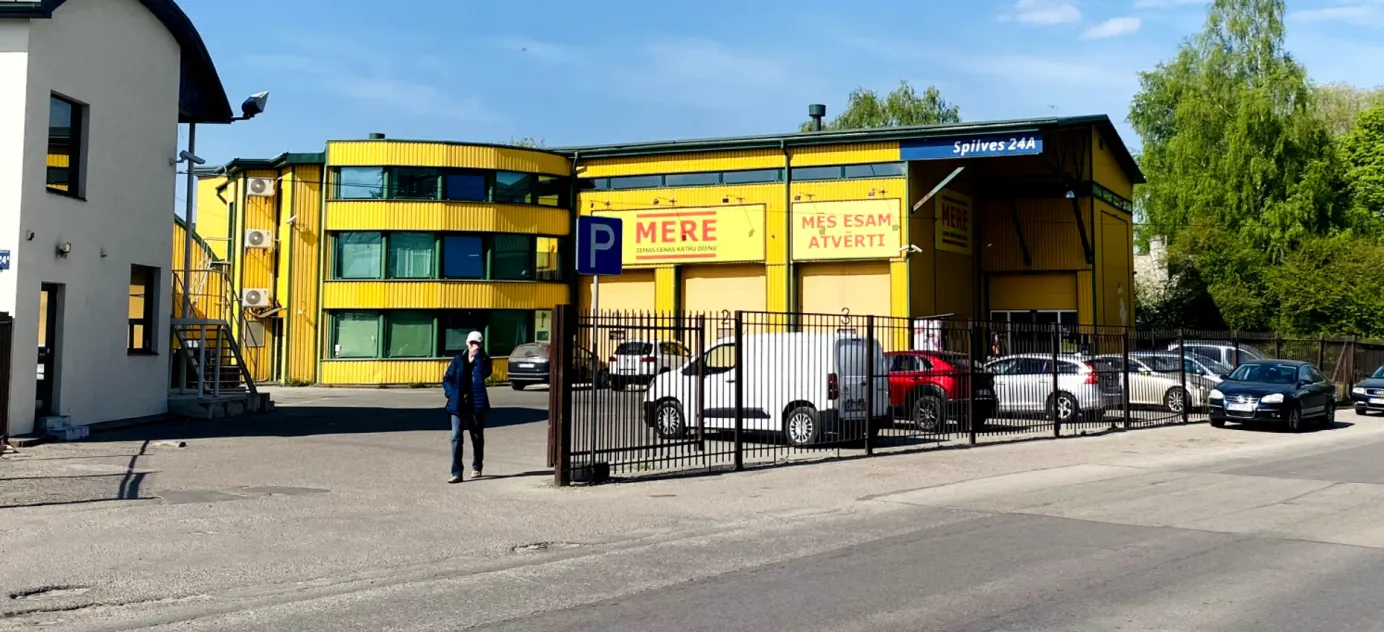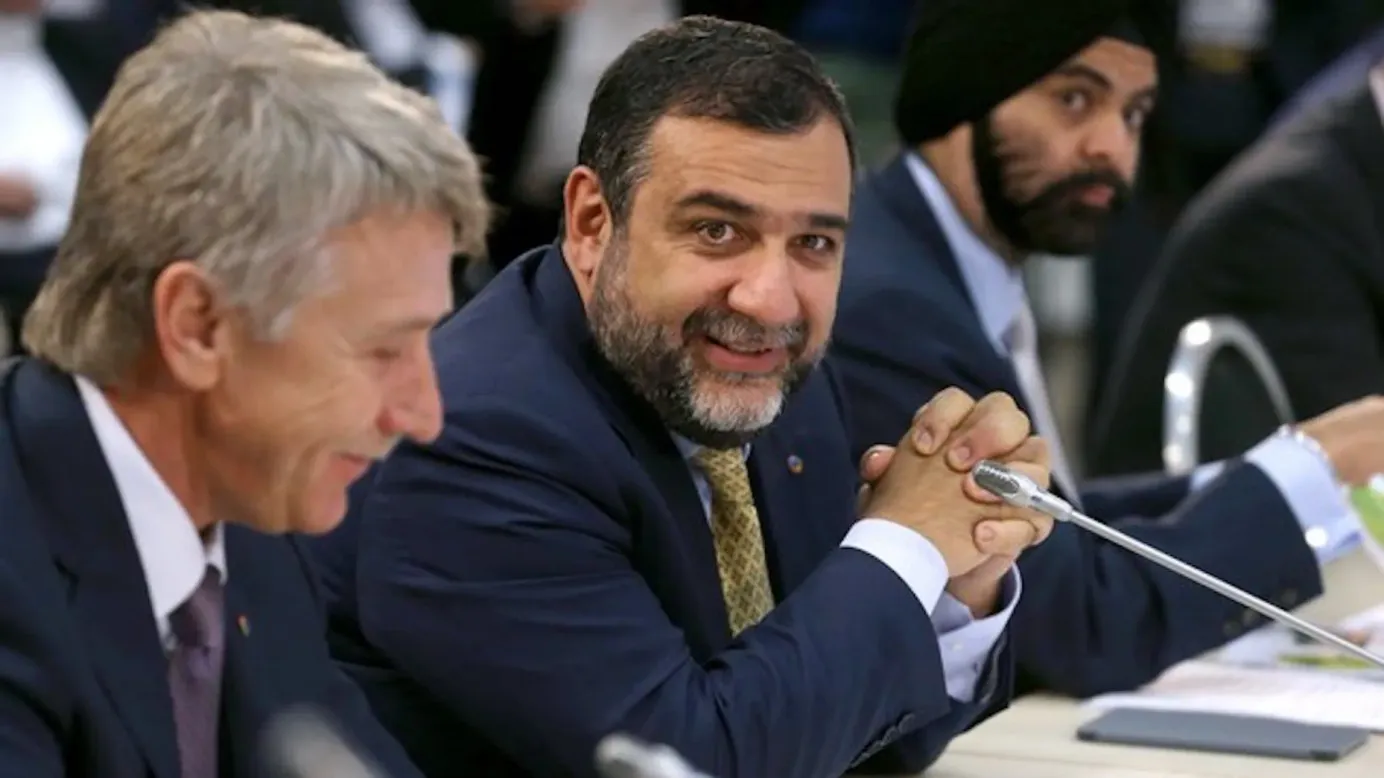
How Russia’s most mysterious retailer is building its business in the West
For most Russian businesses, following the invasion of Ukraine, it’s better to forget about any plans to expand into Europe. However, one Russian company is continuing its efforts to conquer the European market despite the war. Svetofor, founded by Krasnoyarsk’s Schneider brothers, remains Russia’s most mysterious retailer. Let’s take a look at how this discount supermarket, which fills its stores with piles of boxes rather than neatly stacked shelves, has opened dozens of stores in the West at the height of the war.
Bare warehouses
The Svetofor chain, founded in 2009 in Siberia by brothers Sergei and Andrei Schneider, is one of Russia's biggest. It is the definition of no-frills — its stores are like warehouses, with no hint of decoration: food, usually products with a long shelf life, sits on wooden pallets alongside cheap manufactured goods. The brands are little-known and the chain tries to offer goods at a 20-30% discount compared with rival shops.
No decorations, limited selection, a simple layout, low staff numbers and cheap premises on the edge of town help to keep prices low.
Russians like this kind of store. By the end of 2020, Svetofor was the fastest-growing retail chain in the country and, two years later, it moved into the top five Russian food retailers with revenues of more than 400 billion rubles ($5.9 billion at the average dollar rate for 2022).
According to a Russian retail expert, the Schneiders looked to move into Europe after successfully launching in Kazakhstan and Belarus. Svetofor began opening stores in those countries in 2017 and quickly found a niche. In Belarus alone, Svetofor now has 190 outlets, 25 of which opened since the invasion of Ukraine. In Kazakhstan, there are at least 50 Svetofor stores. In winter 2022 the chain launched in Uzbekistan, opening four stores.
The company follows the same formula in these so-called “friendly nations,” and in Europe, as it does in Russia, said former employees in the U.K. and one of the Baltic states.
Cheap and apolitical
Svetofor came to the European market under the Mere brand name in 2017-19. There are currently about 100 Mere stores across the continent, although no more than a dozen in any one country. Two sources from Svetofor’s European companies told The Bell they believed that Mere’s total revenue is around 50 million euros (about 1% of the Russian turnover). That estimate was backed up by an expert from a leading analytical company.
Svetofor initially had ambitious plans to open 50-100 new stores in each new country over five or six years. However, since the war broke out, the chain has opened at least 50 new stores abroad, half of them under the Mere name.
There’s no obvious difference between Mere in Europe and Svetofor in Russia. Even the selection of goods is similar. The boxes contain goods from Belarus, Ukraine and Russia, as well as local brands in bulk packages plus groceries from Poland, Lithuania, Germany and occasionally other EU countries. Non-food items are mostly from Turkey. Before the war, European media reported that most of these goods were produced in Russia. But sanctions now prohibit most types of imports from Russia.
Mere is hardly an equivalent of European discount supermarkets such as Aldi or Lidl. These chains rely heavily on their own in-house brands. “Svetofor is a cheap shop for the poor, not a value choice for thrifty Europeans,” said Ivan Fedyakov of the analytical company INFOLine. “Svetofor is now planning to get 50% of its stock from its own brands. In this respect, it is following the strategies of Aldi and Lidl 40 years ago. Back then, they were also hangars with wholesale consignments of consumer goods.”
Hitting a bump in the road
Mere has had to close down completely in several European countries since the start of the war. Oftentimes stores would shut down, or never open as planned, because local shoppers called for boycotts when they realized the company was Russian. This happened in Poland, Belgium and France.
Financial constraints and greater scrutiny from banks should make it harder for Svetofor to do business in Europe. Two sources told The Bell that Svetofor is currently making part of its payments in cryptocurrency. One source familiar with Svetofor’s Russian business claims that crypto transfers have been used since its first foreign project in Romania in 2018. A former Mere manager in another European country insisted that crypto transfers only became standard practice after the start of the war.
However, neither the war nor sanctions have played a significant role in Mere’s slowdown in Europe, according to a Mere source based in the U.K. He said that since the war the company deliberately started to hire Ukrainians, not just for shop work but in managerial roles, in order to mitigate sanctions risks. Moreover, so far no European country has imposed sanctions on the Schneider brothers and their business, so officially “they are not being questioned.”
Why the world should care
Despite successes in several European markets (Mere stores now operate in Germany, the Czech Republic, Portugal, Serbia, Slovakia and Romania), it's clear that a Russian business will find it more and more difficult to operate in Europe, said INFOLine’s Fedyakov. Suppliers and landlords are increasingly reluctant to work with Russian companies — and even without sanctions, there is a strong moral and ethical position against Russia’s aggression in Ukraine.





